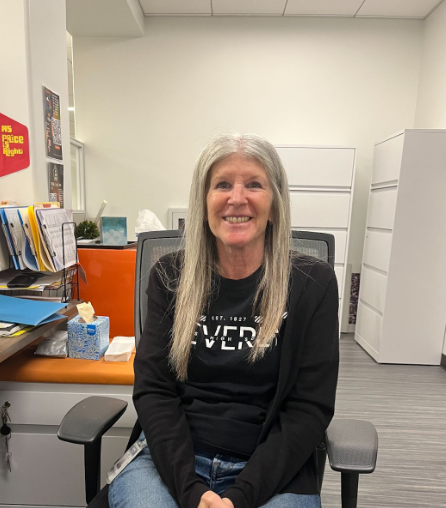Parmis Sahrapima, Web Co-Editor-in-Chief
While Facebook is recognized by parents and administrators as a time-consuming social network, students and teachers have found ways to manipulate the resources that Facebook offers so that it can serve as an advantage to learning. Julie Goler, who teaches sophomore English, has provided her students with the opportunity to use the group Ms. Goler’s English Classes 2011- 2012 as a way to gain information on assignments and to share new and interesting information with the rest of the classes.
Goler’s students find the group to be a great help in allowing them to easily ask their peers about assignments that they have missed, or to clarify questions about specific assignments.
“It’s good because if you didn’t catch something in class, or have any last minute questions, you can always ask people,” sophomore Zoe Tran said.
Others expressed their relief from having to collect the e-mails of everyone in their class. They could save themselves from the huge amount of aggravation that came with having to wait for answers and replies via email, as well as having to constantly visit Jupiter Grades.
“I think it’s great. It does a lot for the class. It’s easy to find out the homework if you’ve been absent from class, or if you need to catch up on assignments. It isn’t a hassle to e-mail things to so many people, and you don’t need to find out everyone’s e-mail just to share information,” sophomore Chelsea Simmons said.
Students also find it easier to have open discussions on how to complete an assignment properly, rather than trying to make the most out of it by only reading the assignments’ due date online.
“If I need help on something relating to English, I could just go to the group and ask people, or read other questions posted by other students. I also don’t need to sign into Jupiter Grades to know when things are due,” sophomore Audrey Park said.
The Facebook group is also viewed as a fun experience that promotes education and creates positive relationships between students and their peers.
“The facebook group is fun and educational because it gives us the chance to bond with our peers and to ask questions to understand the assignment better,” sophomore Eli Eshaghian said.
Technology has impacted the way that information in Goler’s classes are shared with students, allowing classroom methods of communication to evolve alongside technology.
“It’s helpful. It shows how modern technology has advanced from using a common agenda book,” sophomore Daniel Popovsky said.
Goler, who is not only an English teacher but a book group facilitator, sees great potential in the Facebook group and sees it as a great way to connect the community in a pleasing and educational manner.
“One of my main objectives in the classroom is to create a community of readers, and Facebook is a terrific way to assemble groups with the same goals. With my own Facebook page, I post links to Amazon of the books that I am reading, and I would receive feedback in reaction to those postings. This led me to thinking, why not do the same for my classes? I can post movies, books, and articles that I have discussed or might want to discuss in class. The Facebook group allows me to meet kids where they already are. It gives my students a way to talk about exciting things and to respond to hot topics that were discussed in class. I have allowed my students to express themselves about things in which they are interested, and these can really contribute to the welfare of the class. Mehrzad, for example, has been posting Tech tips twice a week. The group allows my students to ask each other questions and to satisfy each other’s questions. They have even used it to post sections of their research papers in order to get feedback outside of school. What other social media tool is as powerful?” said Goler.
Even though the creation of the group made information more easily attainable, many of the students expressed their annoyance over the constant notifications they receive, or the useless comments that several students make.
Goler also believes that the negative reputation of Facebook prevents some parents from allowing their children to participate in this educational group. However, not being able to use Facebook for educational purposes would only prevent kids from learning how to use Facebook responsibly.
“I would like parental control for Facebook. As it is now, the Facebook group is a great educational tool. It CAN show students how to use social media responsibly. Simply not allowing its use doesn’t teach students how to use it thoughtfully. I feel for kids who aren’t allowed to participate in the group but respect a parent’s decision about his or her child. I can’t be the one who decides what my students are reading whether online or in class. That’s up to the parents. I only show students the books that I love. It is up to the parents that decide whether Facebook is acceptable or not. The Facebook group allows students to practice social media responsibly, while I’m able to oversee it,” Goler said.
Even though Facebook is viewed as having a negative impact on education, students and teachers have found ways to use Facebook in a responsible matter for educational purposes. As the positive uses of Facebook have begun their revelation, more teachers have begun creating Facebook groups for their classes. Not only do these groups promote cooperation and a helpful society, but they also allow students to use Facebook for purposes far from entertainment.




























